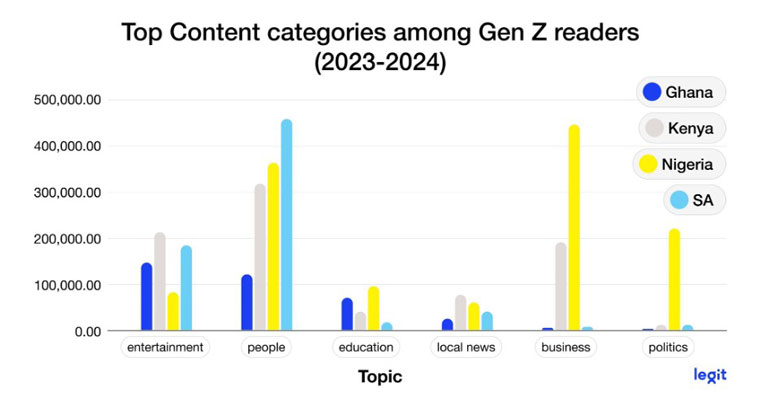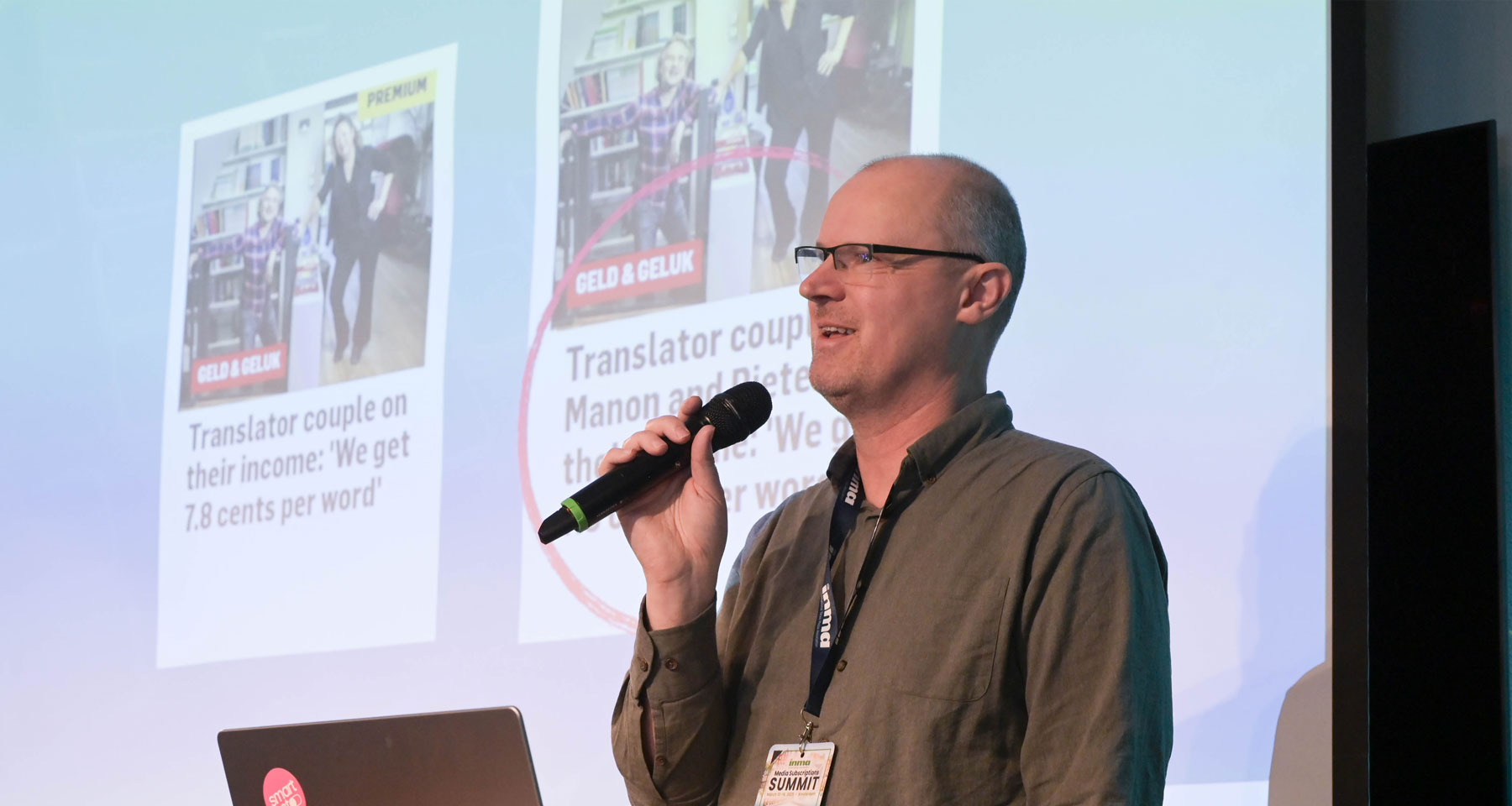Personal stories, socially driven content attract Gen Z readers across Africa
Content Strategies Blog | 27 April 2025
According to the United Nations, Generation Z, which accounts for more than 30% of Africa’s population, has become the continent’s largest demographic stratum. It makes Africa the youngest region globally.
Gen Zers are already shaping the continent’s future. Analysing their news interests and motivations is essential to understanding what Africa will look like in a few years.
Legit, a leading media holding in sub-Saharan Africa, operates several digital media platforms (Tuko.co.ke, Legit.ng, Briefly.co.za, and Yen.com.gh). Between March 2023 and March 2025, the company conducted a comprehensive study on the reading habits of Gen Z readers aged 18 to 24. It included 8,000 of the most-read articles from Nigeria, Kenya, Ghana, and South Africa. More than 6.5 million views were analysed to understand content preferences of this audience.
These are some of most exciting insights from studying Gen Z content consumption preferences.
Key trends in African countries
There is an emphasis on people-focused content leads. Gen Z readers explore people’s lives. They prefer personal stories and socially driven content.


This human-centered focus reveals young readers are drawn to narratives they can relate to. It also challenges the stereotype that Gen Z is only interested in celebrities; instead, they seek authentic, relatable content resonating on a personal level.
Additionally, many readers, especially in Kenya and Nigeria, have shown a keen interest in financial literacy, entrepreneurship, and career-oriented content. This trend likely reflects the economic challenges young Africans face. People actively look for opportunities and empowerment through practical knowledge in business and finance.
Yet, entertainment remains important as well. Entertainment content has grown significantly in influence, particularly in South Africa, where it became the most consumed category over the past year. However, while still popular across all the studied countries, entertainment has become more about Gen Z using culture and technologies to express their identity and creativity.
On the other end of the spectrum, Gen Zers are not into politics. According to the research, it is the least engaging content category. Only Nigeria stood out in 2023–2024, where political articles in the Hausa language attracted significant attention, showing how localisation and cultural relevance boost engagement. In Kenya, steady interest in political content was likely fueled by the recent unrest and youth-led activism.
Gen Z responds to content that feels immediate, local, and culturally meaningful.
Finally, it’s worth noting local news holds a steady appeal. Local news saw consistent, modest engagement across all countries. It is valued for its relevance to daily life and community impact.
Country-specific insights
Each nation presents a unique media landscape. To better understand what’s truly on Gen Zers’ minds, we took a closer, country-specific look — going beyond generalisations to capture the preferences shaping each local audience.
In Nigeria, the most populous African country, Gen Z readers show a vivid interest in personal, relatable stories about everyday life and social issues. While interest in financial and career topics remains strong, the audience’s focus is shifting.
Young Nigerians were frustrated after high interest during the 2023–2024 election cycle. Political content significantly declined in popularity due to frustration over unmet expectations and worsening economic conditions.
The opposite situation occurred in Kenya, where Gen Z led massive protests last year. Business and financial topics have become the most-read categories among readers. Domestic affairs receive more attention. Young users relate to news impacting their everyday lives and civic landscape.
There’s a noticeable rise in interest in articles about education and employment, signaling Gen Z’s pursuit of academic growth and career opportunities. Entertainment content slowly lost dominance, paving the way for more complicated topics.
Ghana is on the other side of the spectrum, with declining interest in human-centered stories and strong preferences for entertainment content. This shows individual narratives are shifting toward broader, more engaging topics. Despite the attention sparked during the recent elections, political news doesn’t maintain long-term engagement among Ghanaian Gen Z readers.
South Africa is another key market where entertainment dominates Gen Z’s interests. Readers demonstrate a sharp growth driven by interest in celebrities, music, viral trends, and pop culture.
As in Ghana, we’ve observed a noticeable decline of interest in personal stories and everyday life narratives in South Africa. While still relevant, local news has also seen a modest dip in engagement. South African Gen Z readers are slowly losing interest in local affairs. Rather, people seek immediate, relatable themes like entertainment or lifestyle.
Political engagement across the states
Although politics doesn’t seem to fascinate African Gen Z readers, the following tendencies may influence countries’ futures.

In Nigeria, political interest has shifted from election coverage to policy-driven topics, with young readers focusing on issues like labour strikes, subsidy reforms, and economic policy.
Kenya’s Gen Z audience remains one of the most politically charged, showing strong engagement with presidential decisions, youth-led activism, and parliamentary controversies.
In Ghana, political content garners only moderate attention, with brief spikes during elections that quickly tapered off. Meanwhile, in South Africa, Gen Z shows growing curiosity toward left-leaning parties and bold political personalities who challenge the status quo.
Conclusion
African Gen Z readers in the selected countries prioritise relatable content, favouring personal stories and local news that reflect their daily lives and challenges. They are increasingly drawn to practical, self-improvement topics supporting economic advancement, such as financial literacy, career development, and entrepreneurship.
This shift highlights young Africans’ proactive approach to navigating uncertain economic conditions and securing a better future. While politically selective, these readers engage most with impactful personalities rather than party ideologies, showing a preference for authenticity and action over traditional rhetoric.






























